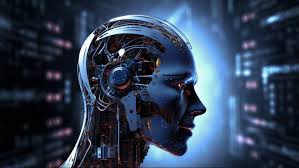AI agents are autonomous systems powered by artificial intelligence, designed to perceive, analyze, learn, and act independently to achieve specific goals. As their architecture and applications rapidly evolve, they are becoming pivotal across industries. This white paper explores the core architecture, design principles, and a range of use cases for AI agents, demonstrating their transformative potential
White Paper: AI Agents - Architecture, Design, and Use Cases
Introduction
AI agents are autonomous systems powered by artificial intelligence, designed to perceive, analyze, learn, and act independently to achieve specific goals. As their architecture and applications rapidly evolve, they are becoming pivotal across industries. This white paper explores the core architecture, design principles, and a range of use cases for AI agents, demonstrating their transformative potential.
Architecture of AI Agents
Core Components
- Large Language Model (LLM): The cognitive core that provides knowledge and contextual understanding.
- Task Execution Agent: Functions as the decision-making CPU, organizing and executing tasks in sequence.
- Memory: Stores historical data and context for future interactions, often powered by vector databases like Pinecone or Chroma.
- Tool Integration: Enables specialized capabilities such as internet access, image analysis, and interaction with other AI systems.
Architectural Modules
- Profiling Module: Defines the agent's role and objectives within its operational context.
- Planning Module: Strategizes actions based on goals and available information.
- Action Module: Implements decisions by executing specific tasks or commands.
Design Principles for AI Agents
- Task-Oriented Focus: Prioritize functionality and task outcomes over anthropomorphization.
- Minimized Human-Like Traits: Use human-like characteristics only when essential for user interaction.
- Transparency: Clearly identify the agent as an AI to manage user expectations.
- Iterative Design: Continuously refine the agent’s capabilities based on user feedback and performance metrics.
Use Cases of AI Agents
1. E-Commerce
- Automated Order Management: AI agents handle inventory checks, order placement, and tracking.
- Product Recommendations: Provide personalized shopping suggestions using customer data.
- Image-Based Search: Enable users to search for products using images.
2. Sales and Marketing
- Lead Qualification: Analyze prospects and prioritize leads for sales teams.
- Competitor Analysis: Continuously monitor competitor activities to inform marketing strategies.
- Email Campaigns: Personalize and automate customer communications.
3. Customer Support
- Technical Assistance: Resolve complex issues through natural language processing (NLP).
- Self-Service Solutions: Automate tasks such as password resets and refunds.
- Product Assistance: Provide detailed information and recommendations to customers.
4. Manufacturing
- Predictive Maintenance: Identify potential equipment failures to prevent downtime.
- Process Optimization: Monitor and adjust production lines in real-time.
- Automation: Assist in robotic assembly, welding, and painting.
5. Chemical Industry
- Process Monitoring: Ensure safety and efficiency in chemical operations.
- Failure Prediction: Identify risks to minimize hazards and downtime.
- Resource Optimization: Optimize raw material usage for cost efficiency.
6. Healthcare
- Diagnostics: Analyze medical images and patient data to provide diagnoses.
- Treatment Planning: Create personalized care plans.
- Surgical Assistance: Support robotic surgeries with precision and real-time data.
7. Financial Services
- Fraud Detection: Analyze transactions for anomalies.
- Dynamic Pricing: Implement real-time pricing models for services.
- Investment Insights: Use predictive analytics for better portfolio management.
8. Content Recommendation
- Streaming Platforms: Personalize content for users on platforms like Netflix and Spotify.
- News Aggregators: Curate content based on user preferences and browsing history.
9. Autonomous Vehicles
- Navigation: Combine multiple AI agents for efficient route planning.
- Real-Time Decision Making: Adjust to road conditions and traffic in real-time.
- Safety Features: Monitor surroundings and predict potential hazards.
Recommended Resources
Books
- "Artificial Intelligence: A Guide to Intelligent Systems" by Michael Negnevitsky
- "Competing in the Age of AI: Strategy and Leadership When Algorithms and Networks Run the World" by Marco Iansiti and Karim R. Lakhani
- "Designing Intelligent Agents" by Michael Wooldridge
- "Deep Learning" by Ian Goodfellow, Yoshua Bengio, and Aaron Courville
- "Machine Learning Yearning" by Andrew Ng
Research Papers
- "An Overview of Multi-Agent Systems" - Journal of Artificial Intelligence Research
- "Reinforcement Learning for Robotics" - IEEE Robotics and Automation Magazine
- "Neural Networks for NLP" - Association for Computational Linguistics (ACL)
- "Memory-Augmented Neural Networks" - Neural Information Processing Systems (NeurIPS)
- "Explainable AI: Interpretable Models and Applications" - ACM Computing Surveys
Websites
- LeewayHertz: Comprehensive insights into AI agents and their architecture.
- OpenAI: Innovations in AI technologies and applications.
- IBM Think: Articles and resources on AI agent architectures.
- Salesforce Blog: Practical guides on AI design principles.
- Deloitte Insights: In-depth research on multi-agent systems in enterprises.
- Keen Computer: AI-driven solutions and digital transformation strategies.
Conclusion
AI agents are driving innovation across diverse industries, offering smarter and more efficient solutions to complex problems. With their ability to learn and adapt, these systems promise to redefine how businesses operate and interact with customers.
As AI technologies continue to advance, the future will likely see AI agents becoming even more sophisticated, with broader applications and deeper integrations into daily life. Organizations looking to adopt AI agents should focus on aligning their capabilities with strategic goals while maintaining ethical and transparent practices.
References
- LeewayHertz: Understanding AI Agents and Their Architecture
- Salesforce Blog: AI Agent Design Principles
- RTInsights: AI Agents in Manufacturing and Chemical Industries
- Chatbase: AI Agent Use Cases in Customer Support and Sales
- IBM Think: Intelligent Agent Architectures
- Deloitte: Multi-Agent Systems in Enterprise Applications
- Rapid Innovation: Real-World Applications of AI Agents
- SAP: AI Agents in Business Transformation
- Markovate: AI Agent Design and Impact
- Smythos: Comprehensive AI Agent Research
- OpenAI: AI Innovations and Applications
- ACM Digital Library: Research Papers on AI
- NeurIPS: Advances in Neural Information Processing Systems
For further exploration, visit Keen Computer for expert insights into AI integration and digital transformation strategies.
